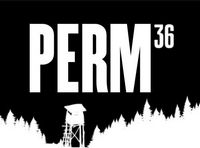Today is the 115th anniversary of writer Varlam Shalamov. Varlam Tikhonovich left one of the strongest and most authentic accounts of life behind the barbed wire of the Gulag. His “Kolyma Tales” – tough, stingy on emotions, but vital literature that does not allow you to forget the horrors of existence in a repressive state.
This largely documentary prose was born as a result of the nineteen years Shalamov spent in penal labor camps. Varlam Shalamov was a political prisoner: the first time, in 1929, he was arrested on charges of participation in the Trotskyist conspiracy and sentenced to three years. He served his term in the Vishersky camp in the Perm region, where he built the Berezniki chemical plant. This experience was described by Shalamov in his antiromantic novel Vishera. In 1937 he was again arrested and sent to the Kolyma prison on charges of anti-Soviet propaganda. Varlam Shalamov’s stories were not officially published from the 1950s, but were distributed in samizdat, and in 1966 they were published abroad. In the Soviet Union “Kolyma Tales” came out after the death of the author, in the late 1980s. It was then, posthumously, that the writer received the real recognition.
For the museum “Perm-36” Varlam Shalamov was always a bearer of deep unvarnished truth of the camp, the author of the historical document, albeit framed as an artistic text. The action of Kolyma Tales unfolded in barracks such as the one that has survived on the territory of the museum. It is important to mention the expedition to Kolyma, organized by the museum team twenty years ago, as a result of which the collection was enriched with truly unique exhibits. And ten years ago – in 2012 – the team of “Perm-36” consulted the Krasnovisher museum of local lore during the work on the exposition devoted to Shalamov.
This non-circular anniversary is one more occasion to turn to the creativity of the writer, who could tell so precisely as few others about the everyday life of the zone, and about the misfortunes of the human soul in inhumane conditions.


